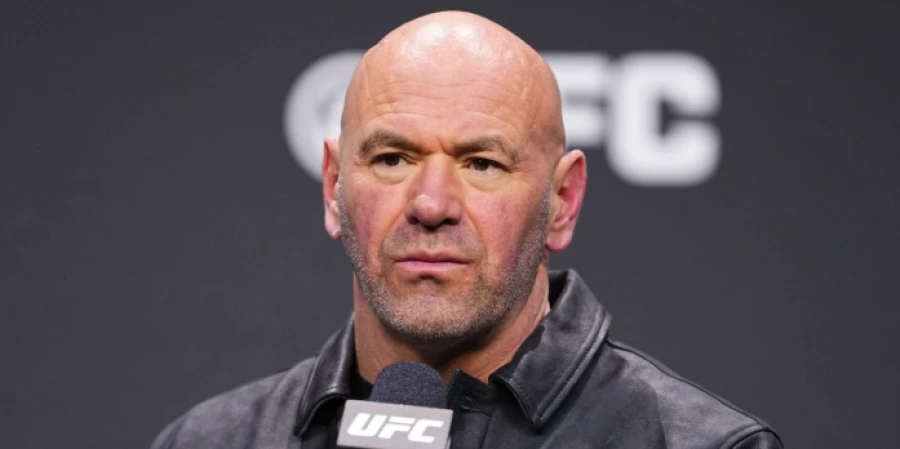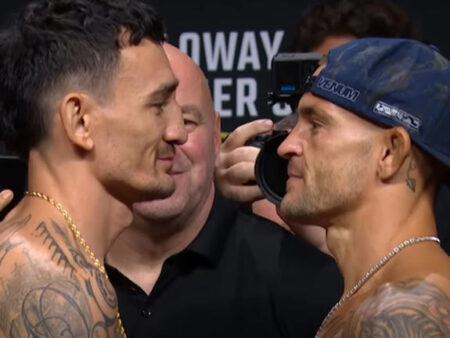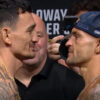
For decades, boxing has reigned as the “Sweet Science,” a sport steeped in tradition, drama, and unforgettable moments. Yet, beneath its glittering surface, many observers, including some of its most influential figures, have diagnosed a persistent ailment: a fragmentation that often prevents the biggest, most anticipated fights from happening. Now, a new diagnostician has entered the ring, one known not for his boxing prowess, but for his uncanny ability to transform a niche combat sport into a global phenomenon: Dana White, CEO of the Ultimate Fighting Championship (UFC).
The Persistent Puzzle: What Ails the Sweet Science?
White, a lifelong fight fan, isn`t shy about his criticisms of modern boxing. He recalls a golden era where legends like Hagler, Hearns, and Leonard faced each other without bureaucratic wrangling, creating a clear pecking order and undeniable excitement. His observations point to several critical issues that have, in his view, chipped away at boxing`s integrity and appeal:
- Fragmented Promotion: Unlike the unified structure of the UFC, boxing is a landscape of competing promoters, each guarding their stable of fighters. This often leads to convoluted negotiations and, frequently, the absence of “dream matchups” that fans crave.
- The Sanctioning Body Quagmire: With multiple major sanctioning bodies (WBA, WBC, IBF, WBO, etc.), boxing`s championship picture is often muddy. Fighters hold numerous belts, some legitimate, some less so, making it difficult for casual fans to track who the true champion is. White suggests these bodies, once meant to regulate, now complicate the sport.
- Decline of Grassroots Investment: A significant concern for White is the dwindling support for amateur boxing, particularly in the United States. He reminisces about a time when amateur tournaments were nationally televised, serving as a crucial pipeline for future stars. The lack of investment here means the talent pool, and thus the future of professional boxing, is potentially compromised.
White`s perspective is clear: too much money and too many cooks in the kitchen led to a breakdown where “guys started talking to other guys and then you’ve got the sanctioning bodies in there, and then none of those guys fought each other, that’s when it started to fall apart and break.”
The UFC Blueprint: Can It Translate?
Having built the UFC from a struggling, controversial enterprise into a multi-billion-dollar global juggernaut, White’s track record speaks volumes. He credits his success to taking “a lot of things from boxing that I loved and a lot of things from boxing that I hated when I started the UFC.” Now, with Zuffa Boxing, his promotional company entering the fray, he aims to apply that same discerning philosophy.
The UFC`s model is predicated on a centralized structure where the promotion controls fighter contracts and matchmaking, ensuring top contenders face each other regularly. This focus on meritocracy and delivering consistent, high-quality matchups has been a cornerstone of its appeal. White envisions bringing this efficiency to boxing, pushing for fights that resonate deeply with fans, such as a hypothetical mega-bout between Saul `Canelo` Alvarez and Terence Crawford – a fight he has already expressed interest in promoting.
A Perfect Storm or a Quixotic Quest?
Intriguingly, White believes that despite its challenges, now is the “perfect time” for his entry into boxing. His rationale is both pragmatic and strategic: “Nobody has a television deal in boxing, there’s some fights on DAZN and that’s it.” This perceived void in major network broadcasting presents an opportunity for Zuffa Boxing to secure a lucrative, comprehensive TV deal, potentially by 2026, which could consolidate talent and viewership under one banner.
This timing argument, while audacious, highlights a peculiar paradox of boxing: it remains incredibly popular, capable of drawing massive pay-per-view numbers and filling arenas, yet its promotional and broadcasting infrastructure often feels fragmented and under-optimized. White, ever the disruptor, sees not a broken system, but a system ripe for a robust, centralized overhaul.
Of course, translating the UFC`s success to boxing won`t be without its hurdles. Boxing is an ancient beast, with deeply entrenched interests, long-standing contracts, and a labyrinthine promotional landscape. Attempting to unify such disparate elements might be akin to herding cats – especially if those cats also happen to be world champions with their own individual agendas and allegiances. Yet, if anyone has proven capable of such a feat in combat sports, it’s the man who once famously declared, “I don`t get into fights, I break them up. Unless I’m promoting them.”
Looking Ahead: The Zuffa Boxing Promise
Dana White`s foray into boxing with Zuffa Boxing is more than just another promoter joining the crowded space; it`s a declaration of intent to fundamentally reshape the sport. His vision promises more “great fights,” a streamlined promotional landscape, and potentially a resurgence in amateur boxing investment. If he can leverage his proven business acumen and aggressive negotiating style, boxing fans might just get the unified, exciting product they`ve long yearned for.
The “Sweet Science” is on notice. The architect of the Octagon is here, and he intends to build something new, even if it means tearing down old walls. Whether this is a perfect storm for boxing`s revival or merely another ambitious promise in a sport full of them, one thing is certain: Dana White`s involvement guarantees it won`t be boring.









